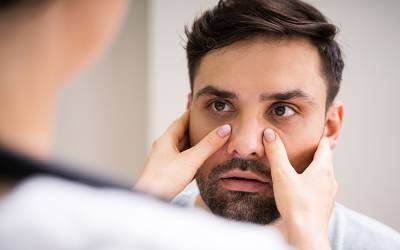
Sinus surgery has been found to be more effective than antibiotics in treating chronic rhinosinusitis, according to a significant clinical trial led by University College London (UCL). This research, conducted in collaboration with the University of East Anglia and Guy’s and St Thomas’ NHS Foundation Trust, offers new hope for patients suffering from this persistent condition.
Chronic rhinosinusitis (CRS) affects approximately one in ten adults in the UK, presenting symptoms such as a blocked and runny nose, loss of smell, facial pain, and fatigue. Often mistaken for a severe cold, CRS can persist for months or even years, significantly impacting quality of life.
Clinical Trial Findings
The trial involved over 500 participants from across the UK, all of whom were administered nasal steroids and saline rinses as part of their standard care. The study compared the effectiveness of sinus surgery with long-term antibiotic use and a placebo. The findings, published in The Lancet, revealed that surgery significantly alleviated sinusitis symptoms, with 87% of surgical patients reporting improved quality of life six months post-operation.
“A three-month course of low-dose antibiotics was not found to be helpful as there was no significant difference in outcomes between those on antibiotics and those in the placebo arm of the trial.”
The MACRO programme, which sponsored this study, is a collaborative effort involving researchers from UCL, the University of East Anglia, Guy’s and St Thomas’ NHS Foundation Trust, and several other prestigious institutions. Funded by the National Institute for Health and Care Research, the programme aims to enhance the treatment of common ENT conditions.
Expert Opinions and Implications
Professor Carl Philpott from UEA’s Norwich Medical School, one of the Chief Investigators of the MACRO trial, emphasized the potential impact of these findings. “Chronic rhinosinusitis causes the spaces inside the nose and head, called sinuses, to become inflamed and swollen. This common condition keeps mucus from draining. It gives patients a very stuffy nose, breathing through the nose can be really hard, and it is the major underlying cause of smell loss in the general population,” he explained.
“What we found is that surgery was effective at reducing symptoms six months on, while taking the course of antibiotics seemed to make little difference.”
Professor Claire Hopkins from Guy’s Hospital, London, another Chief Investigator, noted the significance of the trial’s results for the NHS. “Although sinus surgery is commonly performed within the NHS, uncertainty regarding its effectiveness has led to restricted access for many patients. The results of the MACRO trial highlight the significant improvements in quality of life that many patients experience after surgery,” she stated.
Future Research and Patient Impact
The researchers are now focusing on assessing the cost-effectiveness of sinus surgery and continuing to monitor trial participants to determine the longevity of the benefits. This ongoing research is crucial in potentially reshaping treatment protocols for CRS.
Jim Boardman, a MACRO patient representative, shared his personal experience with CRS. “I’ve lived under a cloud for years with CRS, as have many others I’ve met with the same condition. There’s a persistent headache and blocked nose along with the loss of sense of smell, which removes a whole dimension of everyday experience and enjoyment. A clear path to successful treatment will be welcomed by all CRS sufferers,” he remarked.
As the medical community continues to explore the implications of these findings, the hope is that this research will lead to more accessible and effective treatment options for CRS patients worldwide, ultimately improving their quality of life.







